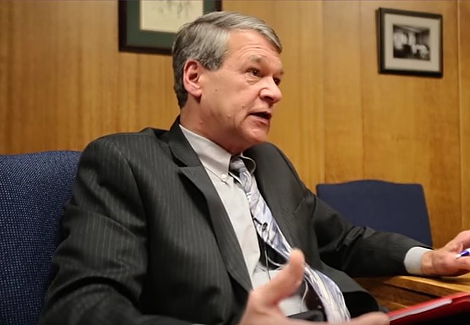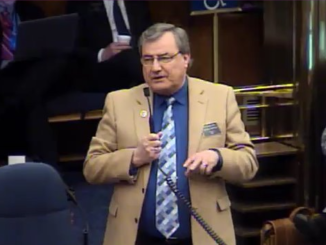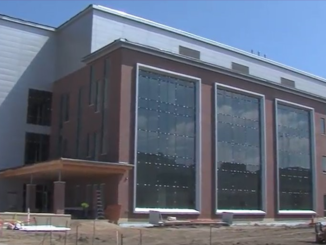
In November of last year, we published an article showing that North Dakota’s ethanol subsidies might be unconstitutional. I encourage you to read it for background information. In support of our position, we included a response in that article from Legislative Council to Rep. Rick Becker (R – District 7) on the issue in which they said:
“It could be argued the transfer of funding from the highway tax distribution fund to the ethanol production incentive fund under Section 39‑04‑39 is not included within the uses of gasoline and other motor fuel revenues authorized in Article X, Section 11 of the Constitution.”
You see, the aforementioned section of the State Constitution is very specific about what these revenue sources can be used for. It specifically says that:
“Revenue from gasoline and other motor fuel excise and license taxation, motor vehicle registration and license taxes, except revenue from aviation gasoline and unclaimed aviation motor fuel refunds and other aviation motor fuel excise and license taxation used by aircraft, after deduction of cost of administration and collection authorized by legislative appropriation only, and statutory refunds, shall be appropriated and used solely for construction, reconstruction, repair and maintenance of public highways, and the payment of obligations incurred in the construction, reconstruction, repair and maintenance of public highways.” (Emphasis Added)
As you can see, there is absolutely nothing authorizing the funneling of dollars to the ethanol industry. The wording in the constitution is very clear— “shall be appropriated and used solely for”.
As a result of the response from Legislative Council, Rep. Becker took the next step of requesting an Attorney General’s opinion on the matter. Last week — after nearly a year of waiting — Attorney General Wayne Stenehjem finally issued a response, but punted the issue by saying:
“The opinion of an Attorney General is not binding on the judiciary. Therefore, it has been this office’s policy to refrain from calling into question the constitutionality of a statute unless it is clearly and patently unconstitutional.”
Yet, he still went on to make some rather odd — even laughable — arguments in regards to the issue.
In his analysis, Stenehjem admits that it is “well settled that taxes and registration fees dedicated” in the State Constitution “can only be used for” the purposes expressed in Article X, Section 11. At this point, you’d think that our Attorney General is headed into some rational analysis, but he isn’t. He goes on to call into question the definition of “construction” and cites a case that says the definition includes “everything appropriately connected with, and necessarily incidental to, to complete accomplishment of the general purpose for which the fund exists.”
One is left to wonder how this does anything to answer the question at hand about the constitutionality of ethanol subsidies? I don’t think any reasonable person would find any definition of construction in relation to public highways to be related at all to handing out taxpayer dollars to an ethanol plant.
Stenehjem then goes on to make what is arguably a valid legal point when he makes a distinction between “dedicated funds” and “non-dedicated funds” in the Highway Tax Distribution Fund. He rightfully points out that there are non-dedicated funds deposited into this fund and expresses the opinion that, “The Legislature is not subject to the same constitutional restrictions when appropriating non-dedicated funds.”
On the surface, this argument makes legal sense, but how do we distinguish the one from the other once the deposits are made into a single fund? Is it strictly non-dedicated funds that are being used to pay out ethanol subsidies? These types of questions, Stenehjem says, he refuses to answer. Why? Because these are “questions of fact rather than questions of law.”
Then our Attorney General moves on to what I think is nothing short of an amusing argument, when he calls into question whether “farm vehicles” are a “motor vehicle” or not. I know. Doesn’t sound logical, does it? That’s because it isn’t. Remember, Section 39-04-39 is where the North Dakota Century Code authorizes the ethanol subsidies by saying:
“The state treasurer shall transfer annually from the highway tax distribution fund to the ethanol production incentive fund an amount equal to forty percent of all sums collected for the registration of farm vehicles under subsection 5 of section 39-04-19 except that no transfer may be made in an amount that would result in the balance of the ethanol production incentive fund exceeding seven million five hundred thousand dollars.” (Emphasis Added)
As you can see, the formula for determining the amount transferred to the “ethanol production incentive fund” is 40% of everything collected for “the registration of farm vehicles”. Only Stenehjem argues/speculates that perhaps “the Legislature is of the opinion that ‘farm vehicles’ are distinct from ‘motor vehicles’ and therefore not within subject to the constitutional limitations”. Maybe that was their logic, but it would be flawed logic nonetheless.
Interestingly enough, there is no legal definition in the statute that leads us to believe that a “farm vehicle” is somehow not a “motor vehicle”. In fact, the definition of motor vehicle seems to encompass a farm vehicle in Section 39-01-01.46:
“‘Motor vehicle’ includes every vehicle that is self-propelled, every vehicle that is propelled by electric power obtained from overhead trolley wires, but not operated upon rails, and, for purposes of motor vehicle registration, title registration, and operator’s licenses, motorized bicycles. The term does not include a snowmobile as defined in section 39-24-01.” (Emphasis Added)
I’d say a farm vehicle is unquestionably a motor vehicle. The only exception identified in the definition itself is a snowmobile.
With this in mind, Stenehjem’s argument is further complicated by Section 39-04-39 itself. Remember, the statute specifically says the “registration of farm vehicles”. I’ll remind you that Article X, Section 11 of the State Constitution specifically says, “Revenue from gasoline and other motor fuel excise and license taxation, motor vehicle registration and license taxes… shall be appropriated and used solely for construction, reconstruction, repair and maintenance of public highways, and the payment of obligations incurred in the construction, reconstruction, repair and maintenance of public highways.”
Now, if you still don’t believe me that “farm vehicles” are indeed “motor vehicles” — based off of the definition I showed you — I’ll explicitly prove it to you by the very section that Stenehjem attempts to use as a means of suggesting that they are somehow not the same. It’s found in Section 39-04-19, which is titled, “Motor vehicle registration fees and mile tax.” It is this section that spells out, “Motor vehicles required to pay registration fees or a mile tax shall pay the following fees”. And guess what’s included in the section? Yep, “farm vehicles”.
Again, despite Stenehjem’s ridiculous claims and horrific attempt at a legal pretzel, the statute is clear— farm vehicles are indeed classified as motor vehicles. And as such, their registration fees would then become part of the “dedicated funds” listed in the State Constitution. If these funds are even a portion of what is transferred into the “ethanol production incentive fund”, it would then follow that the ethanol subsidies are indeed unconstitutional.
In his introductory remarks — prior to his analysis — Stenehjem says that the law regarding ethanol subsidies is “presumed constitutional until declared otherwise by a court.” This is true. Yet, he is so off base in his analysis that he’d have been better off just leaving it at that and to say nothing more.
I don’t know if Wayne Stenehjem drafted this response himself or if he had one of his subordinates draft it for him prior to putting his signature on it. But it’s nothing short of embarrassing. In a nutshell, after a year and all the gobbly-gook that was written, our Attorney General basically told Rep. Rick Becker that if he has further questions, he’d see him in court.
You might feel differently, but I think it was a cowardly response to a legislator who’s asking legitimate questions.
Sources:
- https://theminutemanblog.com/2017/11/13/legislative-council-says-nds-ethanol-subsidies-might-be-unconstitutional/
- https://theminutemanblog.com/2018/04/20/rep-rick-becker-seeks-ag-opinion-constitutionality-ethanol-subsidies/
- https://attorneygeneral.nd.gov/sites/ag/files/documents/Opinions/2018/Letter/2018-L-05.pdf





